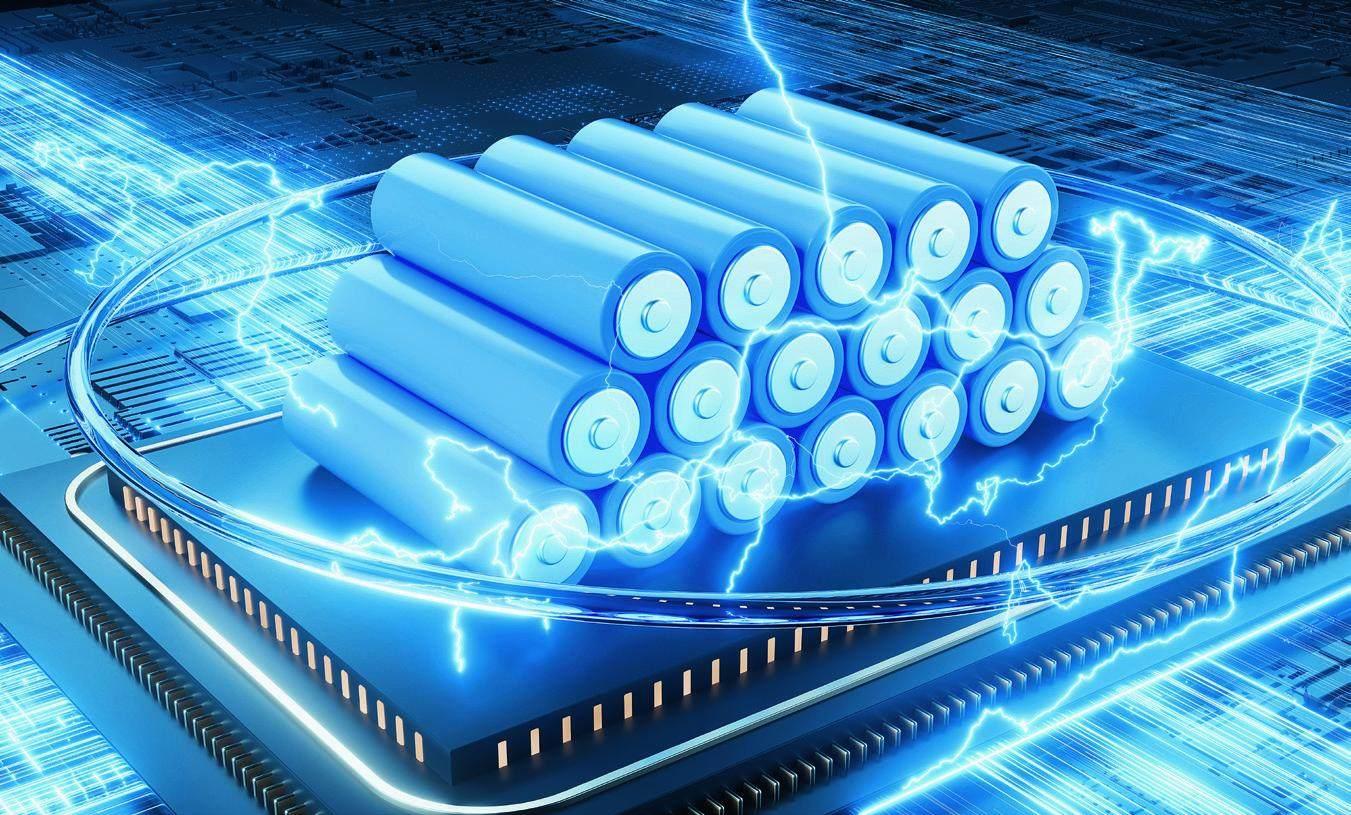Lithium Battery Enterprises Take Multiple Measures to Alleviate the Pressure of Raw Materials
By Ada Wang
Recently, the upstream and downstream enterprises of the lithium battery industry chain have released the financial reports of Q1 of this year. Due to the increasing demands of new energy vehicles for power batteries, the revenue and profit of lithium mining developers and lithium battery cathode material suppliers have boosted. However, for some lithium battery enterprises, their revenue increased by 100-200% while net profits dropped by 20-40%. There have been stark differences between raw material suppliers and battery enterprises in terms of operational performances.
Over-demand for lithium raw materials
In 2021, the global sales volume of new energy vehicles reached 6.75 million, a year-on-year increase of 108%. Chinas output of new energy vehicles reached 2.246 million, a year-on-year increase of 75.3%. The substantial increase in market demand has prompted new energy battery manufacturers to expand productions.
Since early this year, Chinese battery enterprises have had strong desires for expanding investment and production. During Q1, the investment in lithium battery industry has exceed RMB 209.1 billion, with the total increased capacity of 579 GWh. In the whole year of 2021, Chinas power battery capacity was only 219.7 GWh.
“It takes 9 months to 1 year to expand the battery production, but the expansion of lithium ore production normally takes 15 to 24 months,” said Xiao Taiming, Deputy General Manager of Yiqi Lihe.
For battery enterprises, capital supply is the most important condition for expanding production. However, for lithium mining enterprises, it is not easy to improve lithium production capacity. Industry insiders said that for bulk product suppliers such as lithium mining enterprises, the expansion of production capacity is slow. On the one hand, increasing mining capacity takes a long time naturally; on the other hand, there are national policy constraints on the mining capacities of enterprises.
According to Zeng Youpeng, lithium battery analyst of Trendforce Consulting, the demand for lithium carbonate, the most critical raw material for lithium batteries, amount to 567,000 tons in 2021, while the production capacity was only 554,000 tons. The short supply and over-demand for the raw materials have led to the shape rise in prices from the end of last year to the end of Q1 this year.
As important raw materials for producing cathode materials of ternary lithium batteries, the cobalt and nickel have also seen growing demands. Zeng Youpeng said that by 2025, the total market demand for cobalt in the battery sector will reach 190,000 tons, of which the cobalt demand for producing power batteries will reach 136,000 tons. Although power battery manufacturers are trying to use less cobalt and looking for non-cobalt battery materials, the rapid growth of sales of production and sales of electric vehicles have led to the rising demands for cobalt. For the nickel material, the nickle supply is sufficient globally, but according to Zeng Youpeng, there will be structural short supply of battery-used nickel as the usage of nickel keeps growing for producing electric vehicles.
The strong demand for raw materials, plus the difficulties and long cycle of expanding capacity, have created a seller market for raw materials. The batteries manufacturers are willing to reduce the procurement price, but it is very difficult the cut the price due to the short supply in the market.
Large-scale production increase
According to the statistics of factory construction and production expansion plans released by 13 major lithium battery material manufacturers in China from November 2021 to April 2022, they have formulated an equipment investment plan with a total amount of about RMB 71 billion. By 2025, the production capacity of the worlds largest manufacturer of insulating materials will increase threefold from the current level.
Li Xiaoming, Chairman of Yunnan Enjie New Materials Co., Ltd., the worlds largest manufacturer of insulating materials, said that the company will increase investment by RMB 20 billion to build new factories in Yunnan, Jiangsu, Hubei and Chongqing. In 2022, some of the companys factories in Hungary will start production, and it is also considering to build new factories in North America. By the end of 2021, the companys annual production capacity has reached 5 billion square meters and is expected to exceed 16 billion square meters in 2025. The companys customers cover many industries, including CATL, BYD, Panasonic, Samsung Group and LG Group.
According to data from Japans Yano Research Institute, the four main raw materials of lithium batteries produced by Chinese enterprises accounted for 62% to 81% of the world in 2020.
Other enterprises are also improving the mechanism of expanding production of battery raw materials. Beiteri New Materials Group, which has the worlds largest share of negative electrode materials, announced a new production expansion plan at the financial statement meeting in April this year. The companys medium and long-term goal is to increase its annual production capacity from 140,000 tons in 2021 to 400,000 tons, and will build new factories in Shenzhen and Yunnan. In addition, Jiangsu Guotai International Group, a leading producer of electrolyte, will also build new plants in Zhejiang, Fujian and Poland.
Market tension hard to return to normal in the short run
Zeng Youpeng said that lithium itself is a cyclical product. He believes that the high lithium price will not last for a long time, and will eventually return to normal. He said that by 2023, there will be an oversupply of lithium carbonate in the market, but currently it is difficult for the price of lithium raw materials to return to the original level in the short term.
Xiao Taiming said that the battery manufacturers shall expand the business towards the raw material sector or auto productions in the downstream, to ensure the supply security to the greatest extent.
Yang Tingting, senior analyst of CCID Consulting, said that to turn losses into profits under the current market conditions, the battery enterprises shall seek to expand the international market. Take Great Powers 2021 annual report as an example, the profits of its international business have accounted for 22.6% of the total profits. She said that on the one hand, the export business generates higher profits; on the other hand, the competition is less fierce in the international market.
Xiao Taiming also provided several constructive suggestions for battery enterprises: first, suppliers should increase production capacity as much as possible and improve their voice in price negotiation. Second, manufacturers shall try to sign long-term purchase agreements with upstream suppliers to ensure supply, and sign agreements with downstream manufacturers to allow price fluctuations to deal with a series of uncertain factors triggered by market price fluctuations. In this way, battery manufacturers can transmit part of the pressure caused by the price change of raw materials to other companies and reduce the risk.
Lin Nianxiu, Deputy Director of the National Development and Reform Commission, said at the China EV 100 Forum that we should consolidate the technological and industrial advantages of lithiumion batteries, accelerate developing new battery technologies such as sodium ion, cobalt free, solid-state batteries and fuel cells, promote the diversification of battery technologies and materials, establish and improve the recycling system of power batteries, and effectively alleviate the shortsupply of rare metals and scarce metal resources. Lin Nianxiu mentioned that the National Development and Reform Commission will work with relevant departments to study and formulate policies and measures to promote the development of power battery industry and improve industrial competitiveness.
He said that we should strengthen risk monitoring, research and judgment in the field of electric vehicles, give early warning in time and properly control the risks. We should strengthen the coordination of industrial chain and supply chain, give play to the leading role of flagship enterprises, strengthen the connections between upstream and downstream of the industrial chain, and ensure the stable operation of the industry. First, encourage chip and automobile enterprises to accelerate technology R& D through collaborative innovation, actively expand the production capacity of auto-used chips, strive to improve the supply quality and quantity, and effectively resolve the issue of supply shortage. Second, strengthen the construction of resource guarantee system for lithium, tungsten and nickel, continue to ensure supply and stable price, and speed up the construction of a diversified resource guarantee system with simultaneous development and procurement at home and abroad. Third, ensure data and network security. We should always focus on data security in the whole production process of electric vehicles, and strive to build a market-oriented, legalized and international regulatory standard and supervision system.
- China’s foreign Trade的其它文章
- The Beijing Initiative of the Global Trade and Investment Promotion Summit Was Released
- The 70th Anniversary of the CCPIT:Share Development Opportunities and Achieve Mutual Benefits
- CCPIT Signs MOU on Strategic Cooperation with SINOSURE
- The 2022 Boao Forum for Asia for Global Development and A Shared Future
- China and New Zealand Move to“RCEP+”Cooperation
- China Is Still Regarded As One of the Major Strategic Markets

